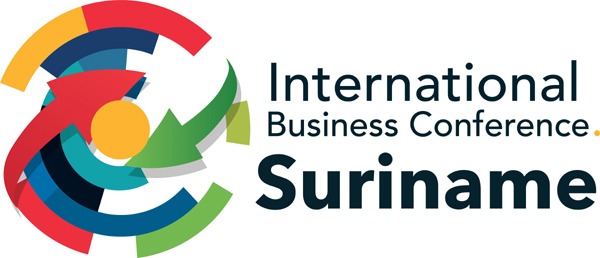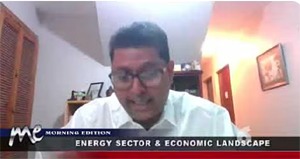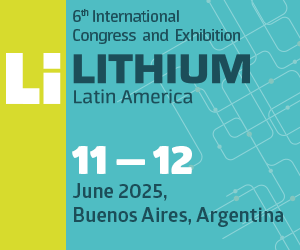Ali’s reelection and Chevron’s expansion mark a turning point in Guyana’s energy diplomacy and Venezuela’s offshore ambitions.

Elio Ohep, EnergiesNet
PHOENIX, AZ
EnergiesNet.com 09 27 2025
The reelection of President Irfaan Ali in September 2025 has solidified Guyana’s position as one of the most politically stable environments for energy investment in Latin America. With the People’s Progressive Party/Civic (PPP/C) securing a parliamentary majority, the administration reaffirmed its commitment to institutional transparency, territorial defense, and continuity in offshore licensing.
Ali has framed political stability as a strategic asset. Amid Venezuela’s ongoing territorial claim over the Essequibo, his government has emphasized that all foreign investment is protected under international arbitration norms. This stance has been reinforced by the International Court of Justice (ICJ), which maintains jurisdiction over the case, and by global recognition of Guyana’s maritime boundaries.
The electoral victory also signals a shift in domestic discourse. The emergence of the We Invest in Nationhood (WIN) party as a new opposition force has displaced the traditional APNU, potentially opening space for more technical debates on energy governance, fiscal redistribution, and extractive licensing.
Chevron Reshapes the Stabroek Consortium
Chevron’s $53 billion acquisition of Hess Corporation has formalized its entry into Guyana’s Stabroek Block, securing a 30% stake in one of the world’s fastest-growing offshore oil projects. The deal was cleared by the International Chamber of Commerce’s arbitration tribunal, which rejected ExxonMobil and CNOOC’s attempt to block the merger based on preemption rights under the joint operating agreement.
Chevron’s arrival significantly alters the operator structure previously led by ExxonMobil, which had favored smaller, more agile partners. As Bloomberg reported, Chevron’s scale could shift development pacing, commercial strategy, and consortium governance. CEO Mike Wirth acknowledged the tension, stating the merger “creates a premier international oil and gas company,” while noting that Exxon’s legal challenge made direct resolution “not possible.”
Guyana welcomed Chevron’s entry, viewing it as validation of its legal framework and licensing stability. Officials emphasized that the arbitration ruling strengthens their international position amid Venezuela’s maritime claims.
Regional Implications: Venezuela, Deltana, and Energy Diplomacy
Chevron also operates in Venezuela under a six-month sanctioned license granted by the U.S. Treasury Department, currently producing over 100,000 barrels per day, which accounts for roughly 25% of Venezuela’s total output, according to Francisco Monaldi, director of the Latin America Energy Program at Rice University.
Monaldi told Bloomberg: “Maduro might be willing to accept a relatively tough deal with the U.S., because it cannot be much worse than what he gets in China.”
He also noted that Chevron’s exports are preferred by U.S. refiners due to the compatibility of Venezuela’s heavy crude with Gulf Coast infrastructure.
Meanwhile, Marianna Párraga of Reuters reports that Venezuela is reactivating dormant offshore gas blocks near Guyana’s maritime frontier—including Chevron’s Plataforma Deltana assets. Venezuelan officials have pressured Chevron, BP, and Shell to accelerate exploration in these regions, which lie closest to the disputed maritime boundary currently under ICJ review.
Offshore Governance and Corporate Reputation
Chevron’s dual footprint in Guyana and Venezuela presents operational, diplomatic, and reputational challenges. The company must navigate relationships with two governments locked in a territorial dispute, comply with U.S. sanctions, and coordinate offshore development within a recalibrated joint venture. Its presence may also accelerate legal and diplomatic dialogue across borders, as stakeholders reassess offshore governance, licensing transparency, and conflict exposure.
Additionally, ExxonMobil’s arbitration loss weakens its control over future consortium composition. According to The Wall Street Journal, John Hess, former CEO of Hess Corporation, was initially blocked from joining Chevron’s board by the Federal Trade Commission (FTC) due to concerns over private communications with OPEC. The FTC later reversed that decision.
Conclusion
The reelection of Irfaan Ali and Chevron’s entry into the Stabroek Block are not isolated events—they form part of a broader energy and geopolitical realignment involving international arbitration, offshore governance, and extractive diplomacy. Guyana emerges as a legally fortified and politically stable actor, while Venezuela reactivates frontier assets in search of relevance. Chevron, positioned at the center of both theaters, must navigate with legal precision and diplomatic tact.
Sources: Bloomberg, Reuters, NYTimes, Energy Analytic Institute Fortune, CNBC, Oil Price
Elio Ohep, editor EnergiesNet, editor@petroleumworld.com
EnergiesNet.com 09 27 2025














